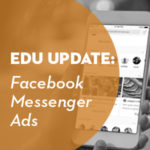It wasn’t that long ago that Mike Petroff wrote this blog post about Google Pages Launch. Some new data about Google demographics pointed out some interesting trends that I couldn’t help but share. With a sample size of 45 million crawled public profiles I feel pretty good that the sample data is accurate. Google is estimated at 90 million total profiles. I definitely recommend looking at the report but here are a couple of things that stood out to me.
Read the Google Demographics Global Report
Male vs Female Ratio
Google is 70% male. This is especially weird when you consider that Twitter, Facebook and even MySpace have a larger female than male population. The world as a whole has a larger male population, but the US has an estimated 4 million more females than males. Why would Google have such a high ratio of males? Keep reading for my guess.
Age and Employer Breakdown
50.4% of all users on Google are between the ages of 18-24 and over 20% of all users list Student as their occupation. The occupation shouldn’t be all that surprising if 50% of all users are in that age bracket. Google is either going very strongly for the younger demographic or this age group just happens to flock to the service. I imagine a lot of this is because of Google’s strength with their Gmail service among individuals in that demographic.
Do People Actually Use Google ?
So I think this is the real question. I’ll admit to not being the power social media user that I was a few years ago, but I never use the Google profile that I created in the launch phase. When I log into my account it doesn’t look like many of my friends spend a lot of time there either. Do we really need or want another social media presence or do we just keep a profile there because we know the power of Google’s search engine?
I just asked my fiancé, who is one of the biggest Facebook power users I know, if she uses Google . Her response was, “Nope, but I got a profile there just to have one.” I imagine that probably says a lot about why the female adoption is so low. Females are some of the most active users on Facebook and from the early days have spent hours looking through friends’ photos and keeping up with relationship statuses. The network effects that Facebook has already created and the, dare I say, dependence that many females in their 20’s have on the service will keep it relevant where something like Google will be something that early adopters “try out.”
Who Cares About User Account Totals?
The one piece of data that this report doesn’t share is user engagement with the service. Facebook claims more than 800 million “active” users with more than 50% of these active users logging in on any given day. Google has 90 million user accounts, but how many of them are actually active? The real value of a network isn’t in how many accounts you have but what people do with their account. The one interesting thing about this is that Google might be the one company on the planet that could care less how active their 90 million users are as long as their account information is up to date. Think about it for a second. As long as they have all the most up to date information on us and know what accounts we are active on then they can collect all the information that they need from us. I’m not saying that active users wouldn’t be nice, but Google is in a unique position and does not need activity to declare their service a success.
Final Thoughts
When you look at the engagement data published I can’t help but get a little freaked that Google is using Google to amass a digital footprint of their users across the web. With 96% of Google revenue coming from advertising this enhanced data about us helps them deliver better and more specific advertising. Maybe that isn’t a totally bad thing but as I’ve said before how much do you really want Google to know about you?
I’m actually happy to see that the percentage of connected profiles, such as Facebook and Twitter, to Google isn’t higher. With both of those sites being much larger and assuming they share much of the same user base it means that everyone isn’t comfortable with Google knowing everything about them. Of course in the interest of full disclosure I do have my Google account linked to all my other accounts on the web. I’m also very cautious about what I share and how it could be perceived. I hope that everyone else is as informed.
So what do you think of the data? What does it tell you?
This post was written by Kyle James








